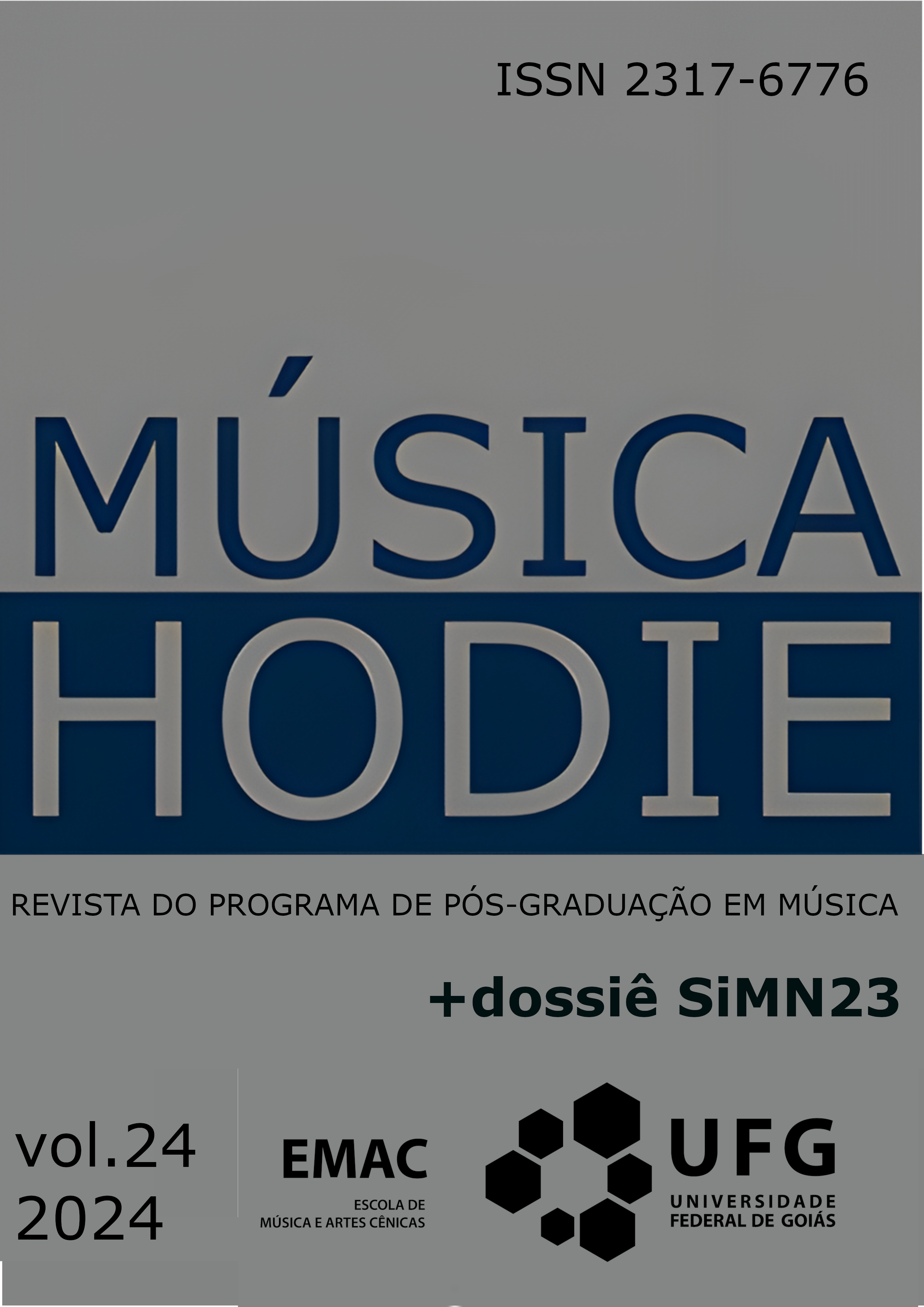A utopia de Björk
um ensaio sobre o referencial simbólico do álbum musical Utopia (2017)
DOI:
https://doi.org/10.5216/mh.v24.79336Palavras-chave:
Björk, utopia, Pensamento mítico, transcendência e imanênciaResumo
O estudo propõe uma análise aprofundada das letras das músicas, da sonoridade e da capa do álbum Utopia de Björk, lançado em novembro de 2017. A argumentação busca compreender como a artista islandesa utiliza esses elementos artísticos no intuito de transmitir uma mensagem sobre a busca pela utopia, isto é, o estado idealizado do mundo em harmonia completa. Para tanto, o artigo apoia-se na reflexão teórica proposta pelo compilado de autores Edgar Morin, Ernest Cassirer, Joseph Campbell, Junito Brandão, Mircea Eliade e Vilém Flusser sobre a relação inextricável entre o homem primordial e a natureza, expandindo-se para a compreensão da estrutura (simbólica) do pensamento mítico. Em seguida, avança-se na argumentação ao considerar o papel da música na contemporaneidade. Assim, o estudo destaca a posição de Björk na tradição de incorporar temas naturais em sua produção musical, e propõe uma análise cuidadosa para desvendar o modo pelo qual esses elementos artísticos contribuem para a expressão da mensagem utópica ecológica. Seu álbum Utopia (2017) é explorado como reflexo dessas ideias, apresentando uma visão de mundo idealizado — portanto, utópico — no qual a convivência entre humanos, natureza e tecnologia é possível. Por fim, o estudo analisa as composições musicais, os arranjos e a capa do álbum no intuito de desvendar os significados e interpretações subjacentes à obra. Destaca-se a potência da música de provocar reflexões sobre valores e ideais, bem como encorajar o estímulo da imaginação criativa em meio às demandas da vida cotidiana.
Palavras-chave: Björk; utopia; pensamento mítico; transcendência e imanência.















